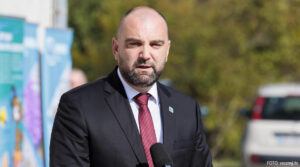The Institute’s director on the challenges in tourism due to climate change for the journal Večernji list


We live in a world that is increasingly uncertain, complex and changeable. In terms of climate policy, the European Union has set itself ambitious targets and a solid foundation, and all Member States need to follow strategic guidelines and improve their capacity to act on their own. In order to align with the European Green Deal, which aims, among other things, to achieve net zero greenhouse gas emissions by 2050, Croatia has developed an updated Integrated National Energy and Climate Plan, which is a basic document for the operational implementation of energy policy and climate action by 2030.
Given the fact that the share of solar energy utilisation in Croatia has increased significantly in recent years and has set ambitious targets for the use of geothermal energy for the coming period, Šiljeg believes that we are demonstrating that we are taking our role in achieving climate neutrality seriously.
But change is coming, and Šiljeg emphasises that drier summers with more extreme weather events and rising sea levels could affect the functioning of various infrastructure systems (security of water supply) and that climate change, combined with other anthropogenic influences, could lead to a decline in biodiversity and a deterioration of ecosystems important for tourism. In addition, increasingly intense and longer fire seasons have posed a growing threat to the tourism sector in recent years.
Read more at the link.

